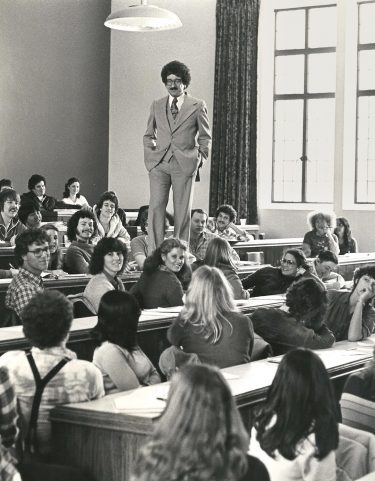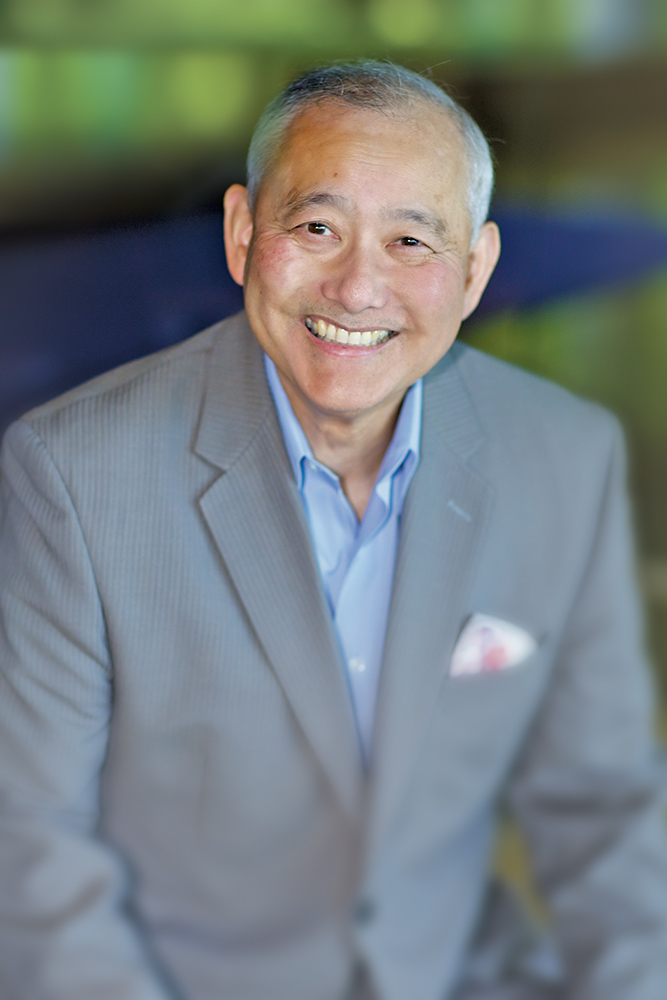The legacy of Willis Konick (1930-2016) and Al Sugiyama (1949-2017)
This winter, the UW lost two influential forces. One was a theatrical, thought-provoking professor who was as popular as any in UW history. The other was a student activist turned advocate for social justice and education who served as a beacon for underrepresented minority communities.
Willis Konick (1930–2016)
There was no escaping Willis Konick’s attention. The comparative literature professor knew all his students by name, would often stand atop their desks to deliver a soliloquy, and would sometimes press them into playing a part in one of his skits. Sending thrills through the room, he broke that invisible barrier between the teacher and the class.

Willis Konick
Because of his eclectic style, because of his ability to make even the densest Russian literature thrilling, Konick, ’51, ’64, was a magnet to thousands of students in his 55 years of teaching at the UW. He organized his courses around tantalizing themes such as “Parents and Children,” “Love, Sex and Murder,” and “Death and Transfiguration.” His classes regularly drew hundreds of students from every major—and had lengthy waiting lists to boot.
A Seattle native, Konick enrolled at the UW in 1947 to study literature and history, which grounded him for his later travels to Russia as a Fulbright scholar. He returned to the UW to teach and complete his PhD. He also taught Russian language and film. His lectures on “How to Read a Film” became the foundation for the UW’s degree program in Cinema and Media Studies. Konick retired from teaching in 2007. He died of heart failure on Nov. 30, 2016, at the age of 86.
A PBS documentary from the 1980s titled “Willis” captured his classic classroom style—dashing up and down the aisles of large lecture halls. Pulitzer-winner Tim Egan, ’81, a New York Times columnist and a former student of Konick’s, once described Konick as a cross between Peter Sellers and Woody Allen who “literally changed people’s thinking about literature and life.”
Al Sugiyama (1949-2017)
When he transferred to the University of Washington in 1971, Alan Tsutomu Sugiyama was already an activist for civil rights. He had co-founded the Oriental Student Union at Seattle Central Community College and quickly joined the Asian Coalition at the UW and advocated for Asian American studies.

Al Sugiyama
But that was only the beginning of his efforts on behalf of the Asian community and underrepresented minorities, work he continued until cancer took his health two years ago. He died on Jan. 2 at the age of 67.
When it came to social equity and justice, Sugiyama, ’84, was tireless. He co-founded an Asian community newspaper, created Seattle’s non-profit Center for Career Alternatives to provide job training for high-risk youth and underrepresented minorities, and was the first Asian American elected to the Seattle School Board. He also served on the UW President’s Minority Community Advisory Committee.
For all his work and advocacy, he received the 2007 Dr. Charles E. Odegaard Award, the UW’s highest achievement in diversity. He was also honored with a Distinguished Alumni Award from the UW Alumni Association’s Multicultural Alumni Partnership. And in 2010, the Seattle City Council proclaimed Oct. 28 Al Sugiyama Day.
Student activists and community leaders took great inspiration from Sugiyama, who always gave liberally of his time and energies. “He helped improve the lives of thousands through his leadership,” says Diane Narasaki, ’77, executive director of the Asian Counseling and Referral Service. “He was an example to us all on how to live a life of meaning with gusto.”